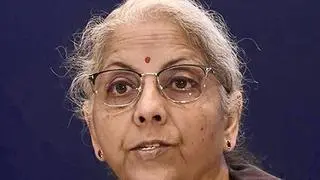Two people with equal talent should have equal access to opportunities. However, this is not the case due to ‘the network gap’, stated LinkedIn’s Opportunity Index 2020 report. This network gap or disparity means networks, like opportunities, are not distributed equally, it said.
“The findings tell us that ‘who you know’ matters, and that networks have power, and connections are valuable for business, mentorship, and job-seeking opportunities,” LinkedIn said in a statement on Wednesday. The report looked at the importance of a professional network to access economic opportunities.
The LinkedIn report also sheds light on how socioeconomic barriers - where one lives, where one went to school or college, where one works - have an impact on one’s access to opportunities.
Based on LinkedIn data, findings state that members in India living in metro cities are 1.76x more likely to have a stronger network than those living in non-metro areas. Findings also state that Bengaluru, Mumbai, and Delhi NCR are the top three regions with people with more reliable system , with members in Bengaluru leading the national average. Members who attend a top university are 1.53x more likely to have a stronger network than those who didn't, it found.
The report also suggests that networking and mentorship are among the topmost opportunities sought after by Indian professionals.
Global findings also reveal that professionals with strong and diverse networks are more likely to be confident about their futures than those with a weaker or less diverse network, the report stated. Its survey findings said that 88 per cent of Indian professionals believe that knowing the right people is key to getting ahead in life.
But, the survey also found that while 88 per cent of Indian professionals believe knowing the right people is key to getting ahead in life, only 13 per cent are looking for networking opportunities. “This vast difference between awareness and action suggests that while young professionals in India aspire for stronger networks, they lack necessary direction and guidance to build these networks,” it said. This barrier is visible across Asia Pacific, it found, with a majority of respondents (51 per cent) believing that a lack of networks is a difficult barrier to overcome and this is mainly because they “lack the confidence and guidance on how to go about building a network”.
“It is our constant endeavour to ensure that people with equal talent have equal access to opportunities, and we see the community come together to give help and get help like never before. We encourage our members to continue bridging this network gap amidst this pandemic and beyond,” said Ashutosh Gupta, India Country Manager, LinkedIn.







Comments
Comments have to be in English, and in full sentences. They cannot be abusive or personal. Please abide by our community guidelines for posting your comments.
We have migrated to a new commenting platform. If you are already a registered user of TheHindu Businessline and logged in, you may continue to engage with our articles. If you do not have an account please register and login to post comments. Users can access their older comments by logging into their accounts on Vuukle.